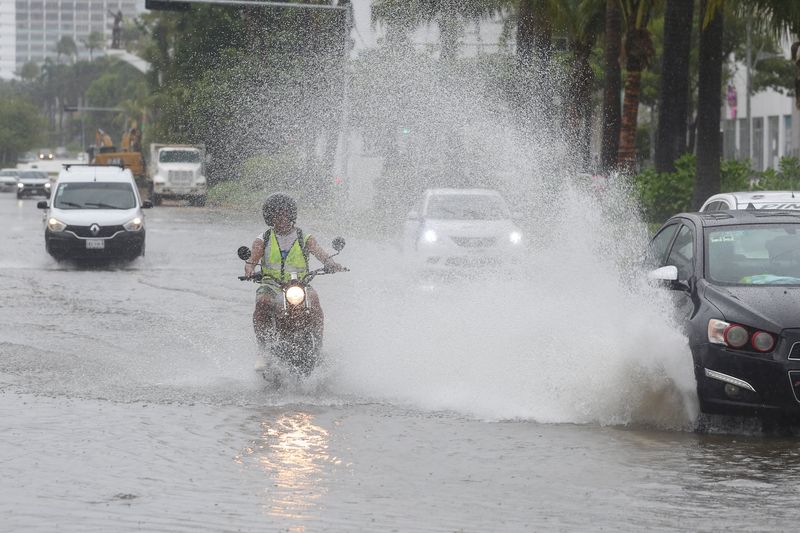Tropical Storm John tilts back to Mexico’s Pacific coast
2024.09.25 14:31
MEXICO CITY (Reuters) – After already battering Mexico’s southern coast, a strengthening Tropical Storm John moved back into the Pacific Ocean but is forecast to again slam into the Mexican mainland on Wednesday evening, according to the U.S. National Hurricane Center.
John first made landfall on Monday at major hurricane strength, triggering flooding and landslides that crushed homes while leaving at least five dead. Its remnants brought intense rains across several states, home to major ports and beach resorts, before strengthening again.
“The ocean’s surface temperatures are favorable to feeding this storm,” civil protection meteorologist Fermin Damian Adame told a press conference, predicting a fresh round of “intense” rainfall through Friday.
The Miami-based hurricane center flagged the possibility that John could again become a hurricane before it strikes the coast. The center warned of likely “catastrophic” flash flooding and mudslides across four states along Mexico’s Pacific coast.
John’s initial hit cut power to around 100,000 homes, uprooted trees and power poles while ripping off roofs.
The five reported casualties included a 10-year-old boy and his mother, who were trapped in their home by a landslide in the village of Tlacoachistlahuaca, in Guerrero state, one of Mexico’s poorest.
While John battered Guerrero’s southern Costa Chica region on Tuesday, it is now forecast to hit its northern coastline, the Costa Grande. State authorities said around 4,000 homes in the resort city of Acapulco were at risk and urged people living in low-lying areas to immediately move to shelters.

Last year, Acapulco was devastated by Hurricane Otis, which killed more than 50 people and is estimated to have left some $15 billion in damages, shocking forecasters by strengthening to a Category 5 hurricane in less than a day.
Scientists say hurricanes are strengthening faster due to higher sea temperatures resulting from human-caused climate change, leaving communities less time to brace for their impact.








